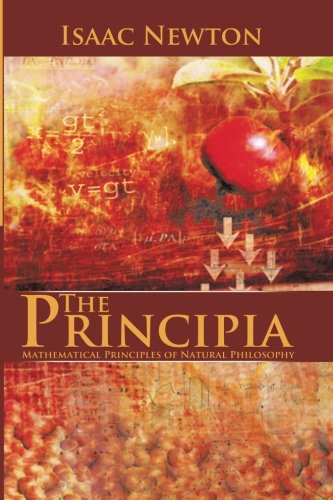What Galileo and Descartes had begun, Isaac Newton polished: By discovering the mathematical principles that grounded everything from falling apples to orbiting moons, planets, and comets, Newton laid the foundations of modern physics. Oh, and he co-invented calculus too. And a new kind of telescope. And more. Some of his achievements are readily filed under G for genius; others simply reveal his complex and all-too-human personality. Here are 15 things that you might not have known about Sir Isaac.
1. BORN PREMATURELY, ISAAC BARELY SURVIVED HIS FIRST WEEK ON EARTH.
Newton’s father, also named Isaac Newton, died a few months before young Isaac was born in 1642. When his mother, Hannah, gave birth, the baby was so tiny he wasn’t expected to survive. John Conduitt, who would later marry Newton’s niece, recounts Newton’s claim that “when he was born, he was so little they could put him into a quart pot.”
2. YOUNG ISAAC WAS BULLIED AT SCHOOL—AND FOUGHT BACK.
 The Clockwork Universe...
Best Price: $1.88
Buy New $9.75
(as of 06:00 UTC - Details)
The Clockwork Universe...
Best Price: $1.88
Buy New $9.75
(as of 06:00 UTC - Details)
As a youngster, Newton attended the King’s School, the local grammar school in Grantham, Lincolnshire (still functioning as a boys school to this day). One day the school bully kicked Newton in the stomach, prompting Newton to challenge the boy to a fight after class. John Conduitt writes: “Though Sir Isaac was not so lusty as his antagonist, he had so much more spirit and resolution.” Newton won the fight, which ended with Newton pulling the other boy by the ears, and pushing his face “against the side of the church.” The incident may have kick-started Newton’s academic performance: Before the fight, he was near the bottom of his class; afterward, he rose to be first in the school.
3. THE APPLE PROBABLY DIDN’T HIT HIM ON THE HEAD.
Like the story of Galileo and the Leaning Tower of Pisa, the story of Newton and the Apple has taken on legendary proportions. Lazing in the garden of his boyhood home, Newton saw an apple fall to the ground; in contemplating its fall, he also thought about the Moon moving in its orbit around the Earth, eventually deducing that the same force—gravity—was the cause of both. As he recalled later, he “began to think of gravity as extending to the orb of the moon.” Historians suggest that the apple story, which Newton only told very late in life, should be taken with a grain of salt. And he never claimed it bonked him on the head.
4. NEWTON WAS THE QUINTESSENTIAL ABSENT-MINDED PROFESSOR.
As a student and later a professor at Cambridge, Newton had a reputation for being reclusive, and even a bit nasty. He had few close friends, rarely spoke, and sometimes got so caught up in his work that he forgot to eat. On one occasion, when no one turned up for his class, he’s said to have lectured to an empty room. (Some have suggested that Newton was autistic—a claim that has been made about Einstein, too—but such diagnoses are very hard to support based on historical information alone.)
 The Principia : Mathem...
Best Price: $9.99
Buy New $11.00
(as of 12:45 UTC - Details)
The Principia : Mathem...
Best Price: $9.99
Buy New $11.00
(as of 12:45 UTC - Details)
5. HIS GREATEST WORK ALMOST DIDN’T SEE THE LIGHT OF DAY.
Newton, who shunned the spotlight, was hesitant to publish many of his results. His most important work, on motion and gravity, collected dust in his study for more than two decades, until astronomer Edmond Halley urged him to publish. The resulting volume was finally printed in 1687 under the weighty title Philosophiae Naturalis Principia Mathematica (Mathematical Principles of Natural Philosophy). Though only a select handful could fully comprehend the book’s dense formulas and diagrams, it cemented Newton’s reputation as the greatest scientist of his day.
6. THAT “SHOULDERS OF GIANTS” THING WAS ACTUALLY AN INSULT.
You know the quote: “If I have seen further, it is by standing on the shoulders of giants.” It sounds like Newton is giving credit to the great thinkers who came before. In fact, some historians now believe that it was likely intended as a jab at his rival, Robert Hooke, who was short and possibly hunchbacked. But others point out that Newton and Hooke wouldn’t have a falling out for another 10 years.





